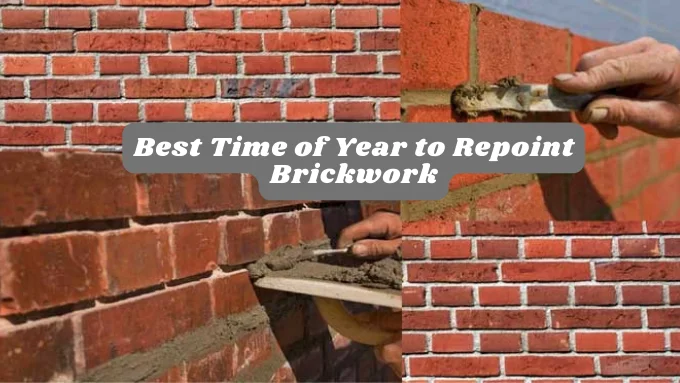
Best Time of Year to Repoint Brickwork
Maintaining the integrity of your property involves periodic upkeep, and one crucial aspect is repointing brickwork. The timing of this essential maintenance task can significantly impact its effectiveness and longevity. In this informative guide, we explore the factors that influence the best time of year to repoint brickwork, ensuring your investment in property preservation stands the test of time.
Avoiding Extreme Weather Conditions
The extremes of winter and summer are generally less favorable for repointing. Winter temperatures can cause complications, such as mortar freezing before it sets, while high summer temperatures may lead to rapid drying, affecting the curing process. Choosing milder seasons is advisable to ensure optimal working conditions.
Spring and Autumn Ideal Temperature Range
Spring and autumn often provide the ideal temperature range for repointing. Moderate temperatures during these seasons facilitate proper curing of the mortar, contributing to its strength and durability. Additionally, avoiding peak summer and winter months helps prevent potential complications.
Moisture Considerations
While a dry day is preferable for repointing, a certain level of moisture is beneficial to assist in the curing process. Spring and autumn typically offer a balanced level of humidity, promoting optimal mortar curing without excessive dryness or dampness.
Planning Around Rainfall
Planning repointing during a period of minimal rainfall is crucial. Excessive moisture can impede the curing process, leading to potential issues with the mortar’s strength. Checking local weather forecasts and selecting a dry spell in spring or autumn enhances the chances of a successful repointing project
Benefits of Repointing During the Optimal Season
Enhanced Mortar Curing
Repointing during the best time of year ensures optimal curing conditions for the mortar, contributing to its strength and longevity.
Preventing Weather-Related Complications
Avoiding extreme weather conditions reduces the risk of complications such as freezing or rapid drying, promoting a smoother and more effective repointing process.
Long-Term Preservation
Timely repointing, carried out during the optimal season, contributes to the long-term preservation of your property, protecting it from the effects of weathering and deterioration.
DIY vs. Professional Repointing
Discussing the considerations for undertaking repointing as a DIY project or hiring professional services. While some homeowners may opt for a DIY approach, professional repointing offers expertise, efficiency, and long-term reliability. We’ll explore the pros and cons of both options to help you make an informed decision based on your specific needs and preferences.
Conclusion
In conclusion, choosing the best time of year to repoint brickwork is a crucial factor in ensuring the success and longevity of this essential maintenance task. Spring and autumn emerge as optimal seasons, providing moderate temperatures, balanced humidity, and minimal rainfall. By planning your repointing project during these favorable conditions, you contribute to the preservation of your property’s structural integrity and aesthetic appeal. Whether you decide to embark on a DIY repointing venture or seek professional services, understanding the seasonal considerations will guide you toward a successful and enduring outcome. If you have specific questions or require professional assistance with your repointing needs, our team at Complete Carpentry & Maintenance is here to help.